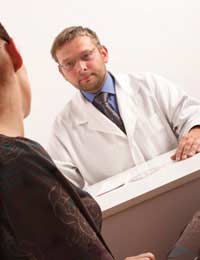Work As A Cardiovascular Technician

Heart health is critical to every person and for patients who have heart problems, their medical care plays a huge role in the quality and length of their life. Cardiovascular technicians are health professionals who help patients suffering from problems relating to the heart and blood vessels.
A Typical Day As A Cardiovascular Technician
A cardiovascular technician supports physicians in the diagnosis and treatment of heart conditions. They work in many vital capacities to help facilitate strong patient care. A cardiovascular technician may work in administrative tasks to schedule patient appointments and also review the interpretations of test results by a physician. They monitor changes in a patient’s heart rate and keep a track of patient files.An Important And Diverse Role In Healthcare
One of the benefits of working as a cardiovascular technician is the potential to specialise in a specific medical area of cardiology. For instance, you can specialise in invasive cardiology or non-invasive cardiology. Someone working in invasive cardiology would help a physician with catheter procedures, or focus on electrocardiograms, which uses ultrasound to look at the heart in more detail.Those in non-invasive cardiology may perform non-invasive tests (any test that does not involve inserting probes or similar instruments into a patient's body) and view ultrasound results. Cardiovascular technicians may also administer medication to patients to monitor the functioning of their heart.
Some cardiovascular technologists may also focus on circulation, where they help physicians to diagnose disorders that affect a patient’s circulation. In a typical day, a technologist may take a patient’s medical history, and assess their pulse and blood flow in the arteries and veins. They may use a variety of non-invasive techniques to determine critical vascular data, such as blood pressure, peripheral circulation and vascular blood flow.
Skills For Success As A Cardiovascular Technician
Cardiovascular technicians tend to work in hospitals or similar healthcare settings. They spend a lot of time on their feet and may have to lift patients to transfer them to various places. As they can work quite closely with patients, they need to be able to handle stress well.Patients in this field can have serious heart problems and these may sometimes involve life-threatening complications. Patients may be frustrated and angry due to a reduced quality of life. A cardiovascular technician must be ready to handle challenging patients. A soothing bedside manner and empathy skills are important in this role. In addition, a techician needs to have a certain level of mechanical skills to successfully operate all equipment.
Working Conditions And Hours
The role offers stable, normal working hours during the usual business working week, and occasionally there may be weekend work. A small number in catheterisation laboratories can work longer and irregular hours. Being on-call can also be part of the role.Training And Education
Most cardiovascular technicians require a minimum of two years' university education, along with professional accreditation. Much of their training in a practical sense will be on-the-job. There are, however, three and four years of training programs and some people enter the profession having already obtained degrees in other health fields.Job prospects are excellent at the present time and the field is experiencing significant growth. There is enormous scope for work in both hospitals and private care settings for cardiovascular technicians. With obesity on the rise and with it, heart-related problems also increasing, the need for qualified cardiovascular technicians follows suit and will continue to grow.
Starting Your Health Career
The best first step to becoming a cardiovascular technician is to speak to someone already working in the field, then follow-up with an academic adviser at a university. Job shadowing for a day can also be helpful to give you a taste of the role and decide if it is ultimately the right health career for you.- CAD/CAM Dentistry
- How to Become a Physiotherapist
- Occupational Therapy Careers
- Emergency Medical Technicians and Paramedics
- What to Expect from a Nursing Career
- Be a Home Care Assistant
- How to Become a Midwife
- Speech and Language Careers
- How to Become a Dentist
- A Career in Dental Hygiene
- A Career in Podiatry


Re: How to Become a Physiotherapist
Kak esehiko sminor k112 ahealthcareer.co.uk
Re: A Career as a Surgical Technologist
Hey, soon to be a qualified ODP in the UK and wanted to move to the states, as ODP is UK specific I have looked into…
Re: A Career as a Surgical Technologist
Hello... Am surgical technician from Kenya with 2 years experience.I want to migrate to the UK to increase my skills and…
Re: Unions for Health Workers
I would like to joine trade union. Can you help me please?
Re: A Career as a Surgical Technologist
I am a surgical technologist in the US. I would like to move to London to work there. Do I need to get certified in the…
Re: A Career as a Surgical Technologist
I am Theatre Practitioner band 4, (surgical tech) I think that’s what they are called in in America, Register nurse in…
Re: Hospital Sanitation Worker
This is my first brief visit, and I'm delighted to have everything in one location.
Re: What is a Phlebotomist?
I am looking to work to hear from you.
Re: Work in Respiratory Therapy
My sister is a respiratory therapist with 5 years experience from India and I year from UAE. She is a graduate of respiratory care…
Re: A Career as a Surgical Technologist
Hi! I am training to become a surgical technologist in Indiana in the US but I am planning on moving to England next…